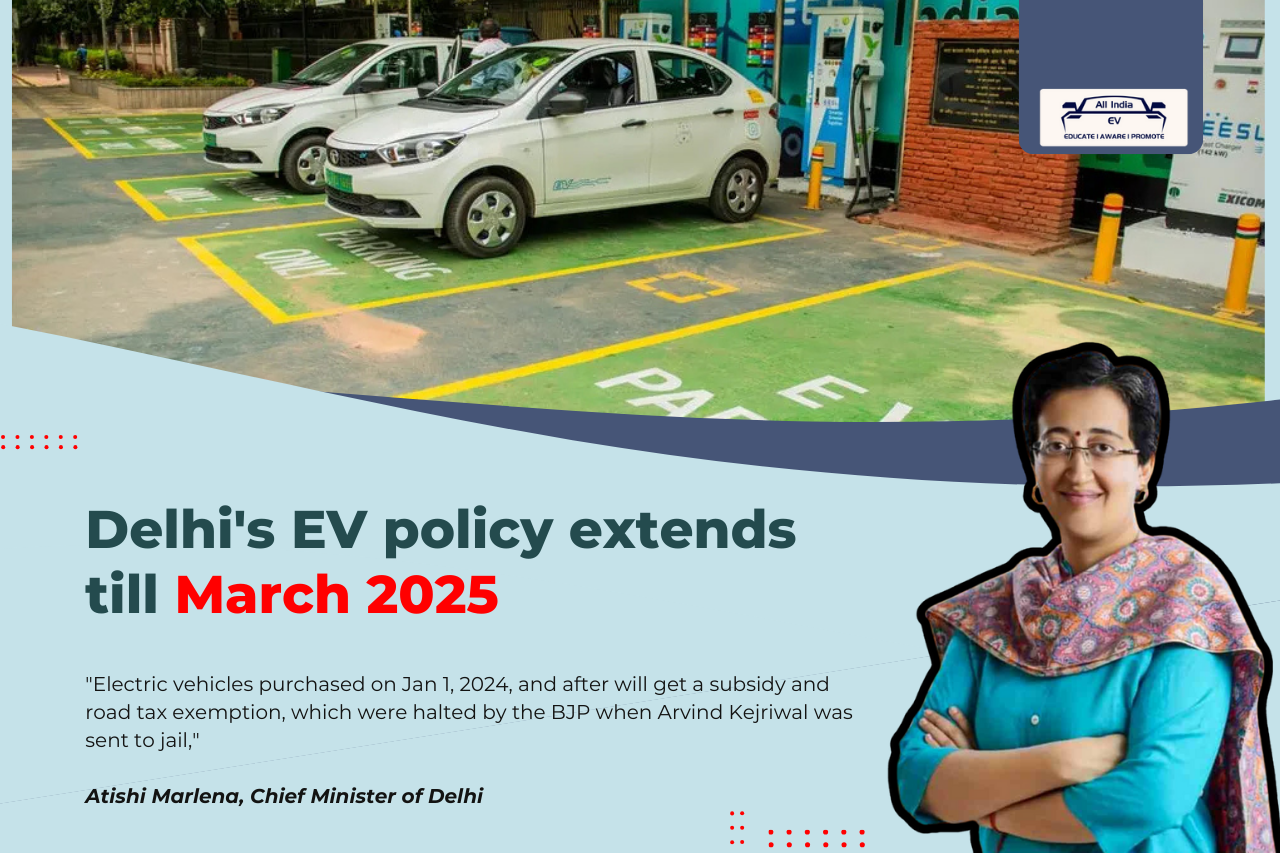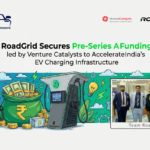
Delhi Extends EV Policy to Combat Air Pollution Until March 2025
Delhi’s Electric Vehicle (EV) policy has been extended until March 31, 2025, as announced by Chief Minister Atishi on November 28, 2024. This extension ensures that electric vehicle purchases from January 1, 2024, will continue to benefit from subsidies and road tax exemptions. The decision to extend the policy comes in response to the poor air quality in the capital and surrounding areas. Delhi, being one of the largest EV markets in India, accounts for about a tenth of the total domestic sales.
The extension of the EV policy is expected to boost the adoption of electric vehicles, thereby contributing to the reduction of air pollution and promoting sustainable transportation solutions in the city. The policy extension is a significant step towards achieving the city’s environmental goals and addressing the pressing issue of air pollution. By continuing to offer financial incentives and support for electric vehicle adoption, the Delhi government aims to create a cleaner and healthier environment for its residents. This move also aligns with the broader national and global efforts to combat climate change and promote sustainable development.
The Need for Extension
The extension of Delhi’s EV policy was driven by the urgent need to address the city’s deteriorating air quality. The capital has been grappling with severe air pollution, which poses significant health risks to its residents. The Delhi government recognized the importance of promoting electric vehicles as a means to reduce emissions and improve air quality. By extending the EV policy, the government aims to encourage more people to switch to electric vehicles, thereby reducing the reliance on fossil fuels and lowering the overall carbon footprint.
The policy extension also aligns with the city’s broader environmental goals and commitments to combat climate change. The decision to extend the policy was supported by various stakeholders, including environmental groups, industry experts, and the general public, who have been advocating for stronger measures to tackle air pollution. The extension of the policy is expected to have a positive impact on public health by reducing the levels of harmful pollutants in the air. Additionally, it will help raise awareness about the benefits of electric vehicles and encourage more people to consider them as a viable alternative to traditional gasoline-powered vehicles.
Benefits of the EV Policy
The extended EV policy offers several benefits to both consumers and the environment. One of the key advantages is the continuation of subsidies and road tax exemptions for electric vehicle purchases. These financial incentives make electric vehicles more affordable and attractive to potential buyers. Additionally, the policy supports the development of charging infrastructure, which is crucial for the widespread adoption of electric vehicles. By investing in charging stations and related facilities, the government aims to address the issue of range anxiety and ensure that EV owners have convenient access to charging points.
The policy also promotes the use of electric two-wheelers and three-wheelers, which are popular modes of transportation in Delhi. By encouraging the adoption of these vehicles, the policy helps reduce traffic congestion and noise pollution in the city. Overall, the extended EV policy is expected to drive significant growth in the electric vehicle market and contribute to the city’s efforts to achieve sustainable and eco-friendly transportation. The policy extension also provides an opportunity for the government to collaborate with private sector partners to further enhance the EV ecosystem in Delhi. This collaboration can lead to the development of innovative solutions and technologies that will support the long-term growth of the electric vehicle market.
Impact on the EV Market
The extension of Delhi’s EV policy is likely to have a positive impact on the electric vehicle market in the city. Delhi is already one of the largest EV markets in India, and the policy extension is expected to further boost sales and adoption rates. The continuation of subsidies and road tax exemptions will make electric vehicles more accessible to a wider range of consumers, including those from lower-income groups. This, in turn, will drive demand for electric vehicles and encourage manufacturers to expand their product offerings.
The policy extension also provides a stable and predictable regulatory environment, which is essential for attracting investments in the EV sector. Companies involved in the production, distribution, and servicing of electric vehicles are likely to benefit from the increased demand and government support. Furthermore, the policy extension is expected to create new job opportunities in the EV industry, ranging from manufacturing and assembly to maintenance and charging infrastructure development. Overall, the extended EV policy is poised to accelerate the growth of the electric vehicle market in Delhi and contribute to the city’s economic development.
Key Highlights:- Policy Extension: Delhi’s EV policy extended until March 31, 2025.
- Subsidies and Exemptions: Continuation of subsidies and road tax exemptions for EV purchases from January 1, 2024.
- Air Quality Improvement: Extension aimed at addressing poor air quality in the capital.
- Market Size: Delhi accounts for about a tenth of total domestic EV sales.
- Charging Infrastructure: Investment in charging stations to support EV adoption.
The extension of Delhi’s EV policy marks a significant step towards promoting sustainable transportation and improving air quality in the city. By continuing to offer financial incentives and investing in charging infrastructure, the Delhi government is encouraging the adoption of electric vehicles and supporting the transition to a greener and more sustainable future.









